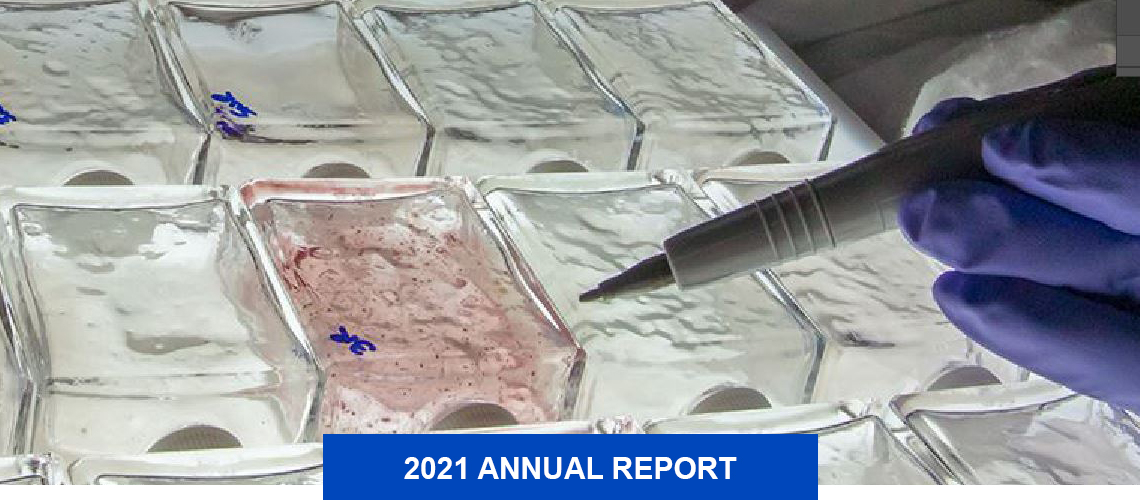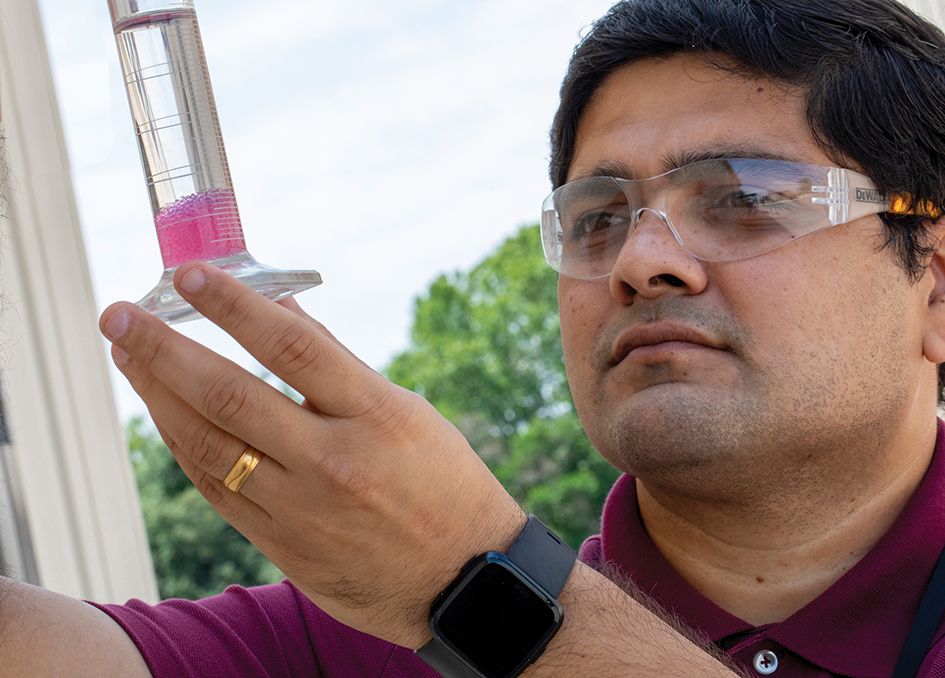
About the Header
Microbiologists study how additives, biocides and storage conditions affect microbial growth in stored fuels. Environmental chambers control temperature and humidity through programmed exposure cycles, and fuel samples are monitored for microbiological activity and overall integrity.
Chemistry and materials affect our everyday lives, from the water we drink to the products we use and the cars we drive.
Material scientists worked with microbiologists to identify possible corrosion-causing bacteria in oil, gas and locomotive coolant samples. Using NACE International standards and other techniques, the team monitored growth in oil and gas systems to estimate the number of acid-producing aerobic and anaerobic bacteria in a sample. Microbiologists also conducted laboratory-scale environmental simulation studies to investigate how additives, biocides and storage conditions affect the integrity of stockpiled fuel.
SwRI is developing a large-scale, cost-effective approach to extract potable water from the atmosphere. Current atmospheric water harvesting technology relies on refrigeration and high-humidity conditions. SwRI is combining its extensive experience in fluidized bed processes with fluid mechanics and heat transfer expertise to develop atmospheric harvesting technology that increases water yields at lower costs.

Silica gel beads are used to develop a low-cost, large-scale method of harvesting water molecules from the air. As they expel moisture, they turn from blue to pink.
